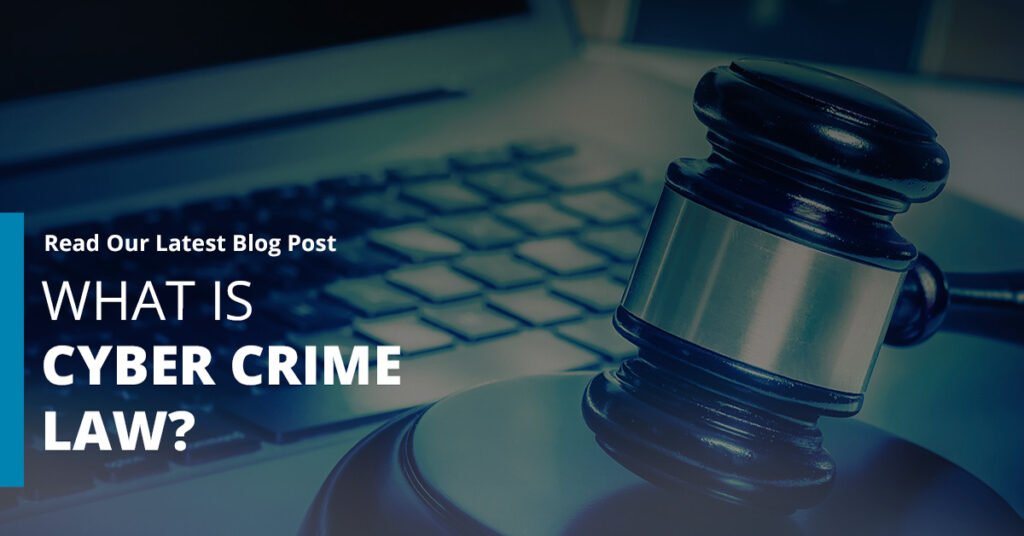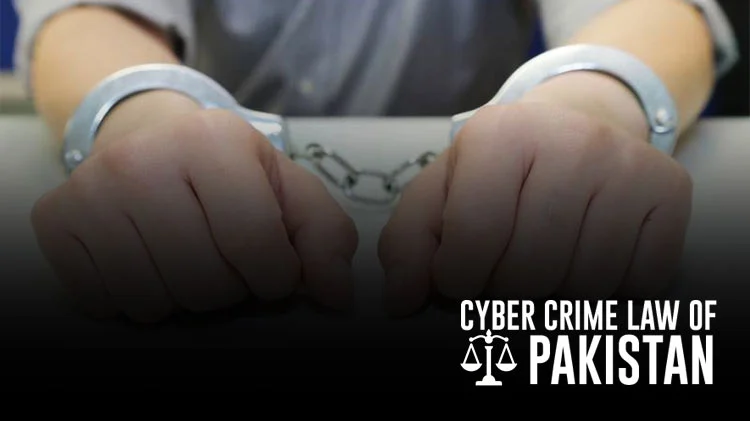Introduction: The Rising Threat of Cybercrime in Pakistan
Cyber Crime Laws in Pakistan Imagine waking up to find your bank account drained, your personal photos leaked online, or your social media account spewing hate speech you didn’t post. Sounds like a nightmare, right? Unfortunately, for many in Pakistan, this is a growing reality. With over 100 million internet users in the country, cybercrime is surging, and the stakes are higher than ever. From financial fraud to online harassment, cybercriminals are finding new ways to exploit the digital world.
In response, Pakistan has introduced robust cybercrime laws to protect its citizens and punish offenders. But how effective are these laws? And how can you stay safe in this digital jungle? In this blog post, we’ll dive deep into Pakistan’s cybercrime laws, explore real-life cases, and share practical tips to keep you secure online. Whether you’re a casual internet user or a business owner, this guide will equip you with the knowledge to navigate Pakistan’s digital landscape safely.
What Are Cybercrime Laws in Pakistan?
The Backbone: Prevention of Electronic Crimes Act (PECA) 2016
The cornerstone of Pakistan’s fight against cybercrime is the Prevention of Electronic Crimes Act (PECA) 2016. Passed by the National Assembly on August 11, 2016, and given presidential assent a week later, PECA is Pakistan’s most comprehensive cybercrime legislation to date. It was designed to address the growing menace of online crimes, from hacking to cyberterrorism, and to align with global standards like the Budapest Convention.
PECA covers a wide range of offenses, setting clear penalties and empowering authorities like the Federal Investigation Agency (FIA) to investigate and prosecute cybercriminals. But it’s not just about punishment—it also aims to protect your data, privacy, and digital rights.
Why Were These Laws Needed?
In 2021, The News reported an 83% surge in cybercrime in Pakistan over three years, with the FIA receiving over 102,000 complaints. From identity theft to online scams, the numbers paint a grim picture. As internet penetration grows—reaching 10-16% of Pakistan’s population—cybercriminals are capitalizing on vulnerabilities. PECA was introduced to curb this rising tide and create a safer digital space.
Key Cybercrimes Covered Under PECA 2016
PECA 2016 outlines specific offenses, each with defined punishments. Let’s break down the major ones:
H2: Unauthorized Access and Data Theft
What It Means
Ever heard of someone hacking into a company’s database or stealing personal information? That’s unauthorized access. Under Section 3 of PECA, gaining access to someone’s system or data without permission can land you in hot water. This includes hacking into emails, social media accounts, or even government websites.
Penalties
- Up to 3 years in prison, a fine of PKR 1 million, or both.
- If the target is critical infrastructure (like government servers), the punishment jumps to 7 years and a PKR 10 million fine.
Real-Life Example
In 2018, Pakistani authorities arrested a man suspected of hacking multiple websites, stealing over $2 million from companies in the US and Europe. Using malware, he accessed sensitive data, highlighting the need for robust laws like PECA.
H2: Cyberstalking and Online Harassment
What It Means
Cyberstalking involves repeatedly harassing someone online, often through social media or messaging apps. Section 24 of PECA addresses this, covering behaviors like sending threatening messages or posting defamatory content.
Penalties
- Up to 3 years in prison, a PKR 1 million fine, or both.
- If the victim is a minor, the punishment increases to 5 years and a PKR 10 million fine.
A Case That Shocked Pakistan
In 2020, a young woman in Lahore reported a cyberstalker who had been sending her threatening messages for months. The FIA’s National Response Centre for Cyber Crime (NR3C) traced the perpetrator, leading to his arrest. This case underscored how PECA empowers victims to seek justice.
H2: Cyberterrorism
What It Means
Cyberterrorism, covered under Section 10, involves using the internet to promote violence, spread extremist content, or disrupt critical infrastructure. Think hacking a government website to leak sensitive data or using social media to recruit for terrorist activities.
Penalties
- Up to 7 years in prison, a PKR 10 million fine, or both.
Why It Matters
With Pakistan’s history of combating terrorism, this provision is critical. For instance, hacking into the Pakistan Stock Exchange’s servers could destabilize the economy, making cyberterrorism a national security issue.
H2: Identity Theft and Electronic Fraud
What It Means
Identity theft (Section 16) involves stealing someone’s personal information—like their CNIC or bank details—to commit fraud. Electronic fraud (Section 14) covers scams like phishing or fake loan apps.
Penalties
- Up to 3 years in prison, a PKR 5 million fine, or both for identity theft.
- Electronic fraud carries similar penalties, depending on the severity.
A Growing Threat
Online fraud through microloan apps has become a rampant issue in Pakistan. Victims are lured with promises of easy loans, only to have their data stolen or face extortion. The FIA has cracked down on such scams, but weak enforcement remains a challenge.
H2: Other Offenses
PECA also covers:
- Child pornography (Section 22): Up to 7 years in prison and a PKR 5 million fine.
- Hate speech (Section 11): Up to 7 years and a PKR 10 million fine.
- Spamming (Section 25): Up to 3 months in prison and a PKR 50,000 fine.
- Electronic forgery (Section 13): Up to 3 years and a PKR 250,000 fine.
How to Report Cybercrime in Pakistan
Step-by-Step Guide
If you’re a victim of cybercrime, acting quickly is crucial. Here’s how to report it:

- Identify the Crime: Gather evidence like screenshots, URLs, or messages.
- Contact the FIA’s NR3C:
- Helpline: 1991 or +92 51 111-345-786
- Email: helpdesk@nr3c.gov.pk
- Address: 2nd Floor, National Police Foundation Building, Mauve Area, Sector G-10/4, Islamabad.
- File a Complaint:
- Submit in person or by post to the nearest FIA or NR3C office.
- Use the online form on the NR3C website (www.nr3c.gov.pk).
- Provide Details: Include your name, CNIC, and specifics of the crime, like the perpetrator’s profile or link.
- Seek Legal Help: Consult a lawyer specializing in cybercrime for guidance.
Challenges in Reporting
Despite the framework, reporting cybercrime isn’t always smooth. Many victims lack awareness of PECA, and the FIA’s Cybercrime Wing is often understaffed. In 2019, the NR3C received over 50,505 complaints, but only 1,071 cases were registered due to resource constraints. Public education and stronger enforcement are desperately needed.
The Role of the Federal Investigation Agency (FIA)
The Cybercrime Wing
The FIA’s Cybercrime Wing (CCW), established in 2007, is Pakistan’s frontline defense against cybercrime. Guided by PECA, it specializes in:
- Digital Forensics: Analyzing devices to uncover evidence.
- Technical Investigation: Tracking cybercriminals online.
- Penetration Testing: Identifying vulnerabilities in systems.
- Training: Building capacity for law enforcement.
Success Stories
The NR3C has had notable successes:
- Cracking down on illegal VoIP setups, saving the government PKR 3 billion monthly.
- Busting gangs involved in hacking police officers’ emails and selling call records.
However, experts like Ammar Jaffri, former NR3C head, argue that overlapping agencies—like the Pakistan Telecommunication Authority (PTA) and National Computer Emergency Response Team—create redundancy and confusion.
Controversies Surrounding PECA
Free Speech Concerns
While PECA aims to protect, it’s not without flaws. Human rights activists, like Nighat Daad of the Digital Rights Foundation, criticize its vague language, which could curb free speech. For example, Section 11 on hate speech is so broad that it risks being misused to silence dissent. In 2020, amendments were introduced to punish defaming the military, sparking outrage among journalists.
The 2022 High Court Ruling
In a win for free speech, the Islamabad High Court in 2022 declared some PECA amendments unconstitutional, citing violations of free expression. Chief Justice Athar Minallah ordered probes into the law’s misuse, giving hope to digital rights advocates.
The 2025 Amendment Debate
In January 2025, Amnesty International raised alarms over new PECA amendments, warning they could tighten government control over online spaces. The vague definition of “unlawful content” under Section 2R means anyone could face prosecution for their online activity, even unintentionally.
Comparing Pakistan’s Laws to Global Standards
How Does PECA Stack Up?
Pakistan hasn’t adopted the Budapest Convention, the global gold standard for cybercrime laws, but PECA draws inspiration from it. Compared to the EU, Pakistan’s laws are less refined. For instance, the EU has specific regulations for data breaches, while PECA’s provisions are broader and less detailed.
Gaps in Enforcement
Sabahat Akhtar, in a 2023 study, noted that Pakistan’s cybercrime laws lag behind due to:
- Weak enforcement mechanisms.
- Lack of public awareness.
- Outdated legal frameworks that don’t keep pace with technology.
Strengthening PECA and aligning it with modern needs could make Pakistan’s digital space safer.
Tips to Stay Safe Online in Pakistan
Practical Steps for Individuals
- Use Strong Passwords: Combine letters, numbers, and symbols. Avoid reusing passwords.
- Enable Two-Factor Authentication: Add an extra layer of security to your accounts.
- Be Wary of Phishing: Don’t click suspicious links or share personal info.
- Update Software Regularly: Patches fix vulnerabilities hackers exploit.
- Report Suspicious Activity: Contact the NR3C immediately if you suspect cybercrime.
For Businesses
- Conduct regular security audits to identify weaknesses.
- Train employees on cybersecurity best practices.
- Partner with reputable cybersecurity firms, as many local businesses do with US and UK companies.
The Future of Cybercrime Laws in Pakistan
The National Cybersecurity Policy 2021
In 2021, Pakistan introduced the National Cybersecurity Policy, aiming to:
- Develop a governance framework for critical infrastructure.
- Promote data protection and online privacy.
- Enhance cooperation with global cybersecurity bodies.
This policy, alongside PECA, signals Pakistan’s commitment to tackling cybercrime. However, experts stress the need for:
- More resources for the FIA’s Cybercrime Wing.
- Public awareness campaigns to educate citizens.
- Updated legislation to address emerging threats like AI-driven scams.
What’s Next?
As technology evolves, so do cyberthreats. Pakistan must invest in training, international cooperation, and stricter data protection laws to stay ahead. The rise of microloan app fraud and deepfake scams shows that cybercriminals are adapting fast—Pakistan’s laws must keep up.
Conclusion: Navigating Pakistan’s Digital Frontier
Cybercrime in Pakistan is a growing challenge, but laws like PECA 2016 provide a solid foundation for fighting back. By understanding these laws, reporting incidents promptly, and adopting safe online practices, you can protect yourself in the digital age. While controversies around free speech and enforcement gaps remain, Pakistan is taking steps toward a safer cyberspace.
If you’ve been a victim or want to learn more, reach out to the FIA’s NR3C or consult a cybercrime lawyer. Stay vigilant, stay informed, and let’s build a safer digital Pakistan together.

FAQs
What is the main cybercrime law in Pakistan?
The Prevention of Electronic Crimes Act (PECA) 2016 is Pakistan’s primary legislation addressing cybercrimes like hacking, cyberstalking, and fraud.
How do I report a cybercrime in Pakistan?
Contact the FIA’s National Response Centre for Cyber Crime (NR3C) via their helpline (1991), email (helpdesk@nr3c.gov.pk), or online form at www.nr3c.gov.pk.
What are the penalties for cybercrime in Pakistan?
Penalties vary by offense. For example, unauthorized access can lead to 3 years in prison and a PKR 1 million fine, while cyberterrorism carries up to 7 years and a PKR 10 million fine.
Can PECA be misused to curb free speech?
Yes, critics argue PECA’s vague language, especially on hate speech, could be misused to silence dissent. The 2022 Islamabad High Court ruling addressed some of these concerns.

